Doomsday Clock Ticks Closer To Apocalypse Because Of Climate Change, Atomic Scientists Warn
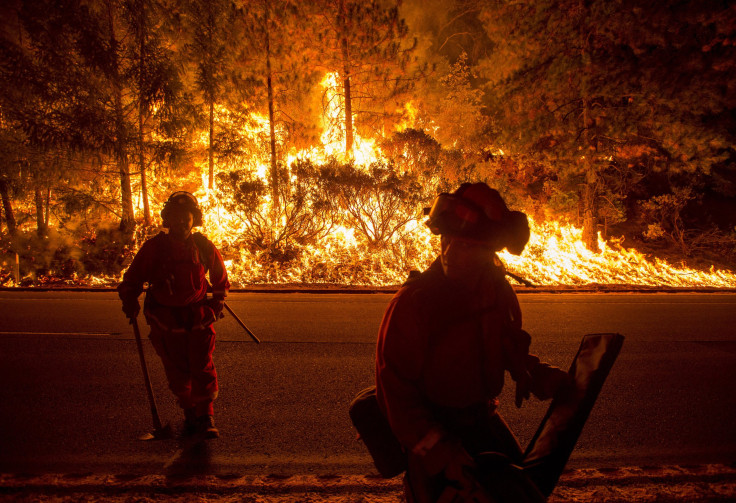
Doomsday is creeping closer as Earth suffers from rising sea levels, melting glaciers, intensifying storms and devastating drought. Scientists have moved the symbolic Doomsday Clock ahead by two minutes, from five minutes to three minutes till midnight, amid growing concerns about climate change -- and the feeble response by countries to stop this existential threat.
“Despite some modestly positive developments in the climate change arena, current efforts are entirely insufficient to prevent a catastrophic warming of Earth,” the Bulletin of the Atomic Scientists, a 70-year-old group, warned in a Thursday announcement. The organization also cited “global nuclear weapons modernization and outsized nuclear weapons arsenals” in the United States, Russia and other nations as additional reasons for moving the clock closer to Doomsday.
"It was inaction on climate change and nuclear weapon dismantling and reduction," Kennette Benedict, executive director, Bulletin of the Atomic Scientists, said in an interview with International Business Times discussing the decision to advance the minute hand on the Doomsday Clock. "You’ve seen the reports on the Intergovernmental Panel on Climate Change and [the U.S. National Oceanic and Atmospheric Administration's] report that the last decade was the warmest in many, many decades. Science is getting much clearer now. We’re really observing quite extraordinary changes, especially in the Antarctic, and the inevitability of the sea level rise."
The scientists cited a handful of factors that show the accelerating threat of climate change. Let’s take a look:
1. Climate change is already happening -- and it’s our fault
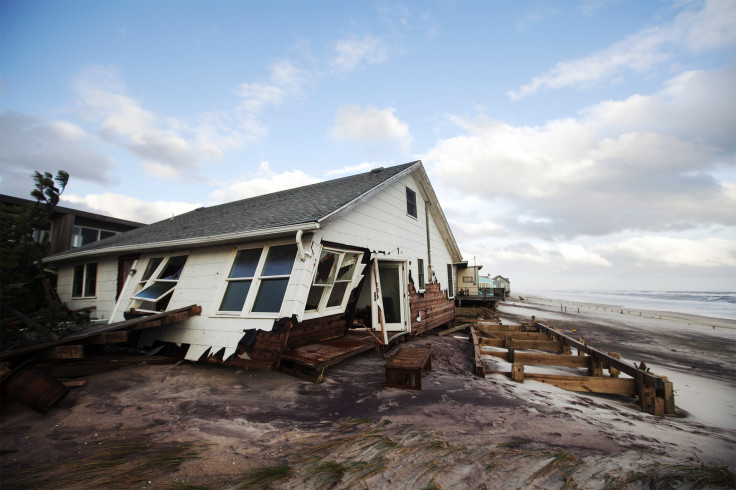
It’s not a distant or wishy-washy threat. Climate change is here and now, according to a United Nations-led panel of global climate scientists. “Human influence on the climate system is clear and growing, with impacts observed on all continents,” the Intergovernmental Panel on Climate Change said in a stark November report.
Over the past century, burning oil, coal and natural gas for energy use, converting forests into industrial farmland and razing pristine jungles has pumped massive amounts of greenhouse gases into the atmosphere. As a result, the atmosphere and oceans are warming, sea levels are rising and concentrations of carbon dioxide -- the most abundant greenhouse gas -- have increased to levels unseen in at least the last 800,000 years, according to the assessment.
Need proof the climate is changing? The panel pointed to the mass die-offs of forests in the U.S. West, where heat-loving beetles are thriving and killing trees. More frequent heat waves are destroying crops and causing tens of thousands of deaths worldwide. In New York City, sea levels are 1.1 feet higher today than in 1900. That change proved especially dangerous during 2012’s Hurricane Sandy; the added ocean height worsened the extent and magnitude of coastal flooding during the storm.
Here’s another unsettling tidbit:
2. 2014 was the hottest year on record
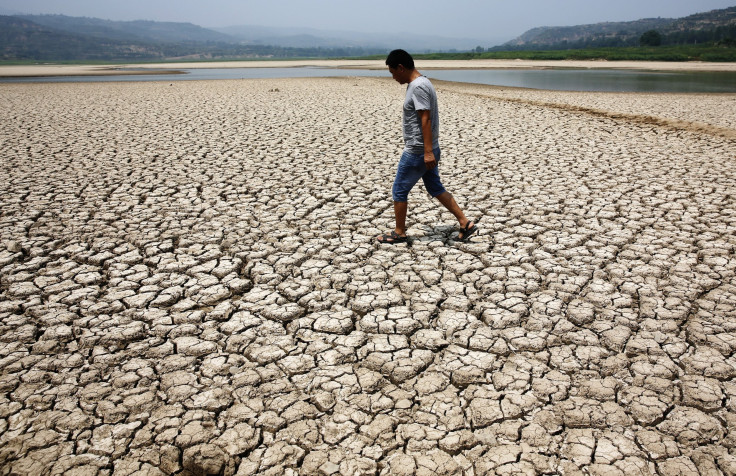
Last year, surface temperatures on the land and oceans reached a combined global average of 1.24 degrees Fahrenheit (0.69 degrees Celsius) above the 20th century average -- the hottest level on record since 1880, scientists at the National Oceanic and Atmospheric Administration said earlier this month.
NASA scientists separately determined that the 10 warmest years in the past 135 are all since 2000, with the exception of 1998. Last year “is the latest in a series of warm years, in a series of warm decades,” Gavin Schmidt, who directs NASA’s Goddard Institute for Space Studies in New York, said recently.
He noted that while chaotic weather patterns in certain years can mess with global temperatures, “the long-term trends are attributable to drivers of climate change that right now are dominated by human emissions of greenhouse gases.”
3. Temperatures will keep rising -- and probably past the 2-degree threshold
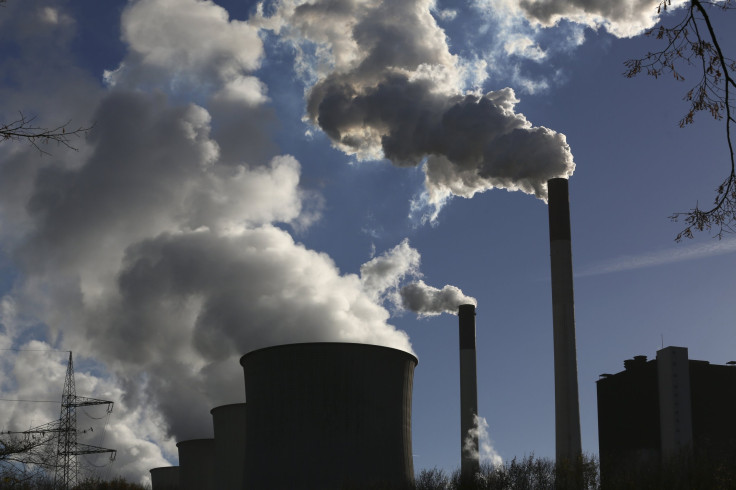
Global warming must be kept to below 2 degrees Celsius (3.6 degrees Fahrenheit) over pre-industrial levels to avoid the most catastrophic impacts of climate change. But scientists generally agree that we’ll breeze past that threshold before the middle of the century, and we could see warming of up to 4.8 degrees Celsius by 2100.
To prevent extreme warming, the world needs to reduce its greenhouse gas emissions entirely before the end of the century. As in, to zero. That means keeping all of the world’s remaining fossil fuel reserves in the ground, an action that will require aggressive government policies such as carbon pricing and trillions of dollars of investment in cleaner energy alternatives.
To limit warming to just 2 degrees, countries will have to keep 80 percent of coal, half of natural gas, and one-third of oil in the ground by 2050, according to a recent study by University College London researchers. Scientists say it’s technically possible to do this, given the recent advancements in solar and wind power and energy-saving technologies. But policy experts say it’s a “politically unachievable” feat right now.
4. Last year’s climate negotiations were kind of a dud
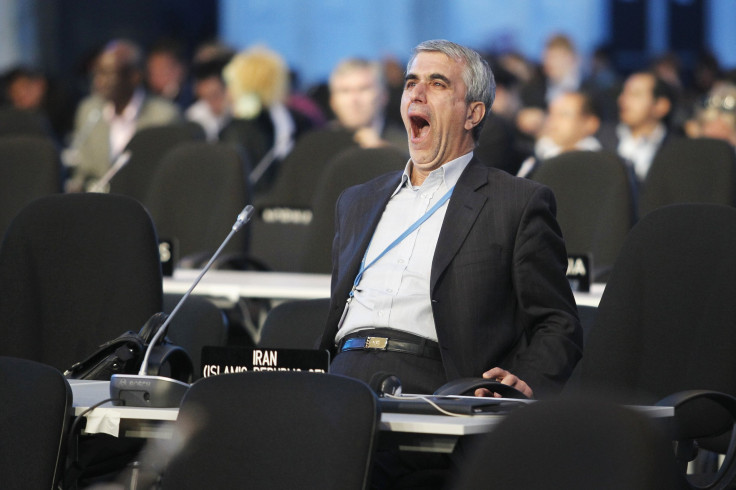
The Doomsday Clock scientists said the U.N. climate talks in Peru in December were “inadequate” given the scope of the threat.
At the meeting, 196 countries agreed to work over the next 12 months to develop an international treaty for reducing emissions and investing in low-carbon technologies. Many negotiators and outside observers hailed the conference as a success; it’s perhaps the closest countries have come to an inclusive global agreement in nearly two decades of talks. But critics, including the atomic scientists, pointed out that the “plan to make a plan” isn’t doing much right now to curb global emissions and halt investment in fossil fuels.
The U.N will have another climate summit in Paris later this year, and Bulletin of the Atomic Scientists' Benedict hopes to see serious developments regarding global warming. "I think it almost takes a change in consciousness and we hope that might happen in Paris, that there might be more money set aside for the people who will suffer the most from climate change. People in poor countries, especially low-lying countries along the coast, that would be a big step forward and would signal, to many, that the international community is taking this seriously," Benedict said. "Talk is talk, what we need is action at this point."
© Copyright IBTimes 2024. All rights reserved.





















